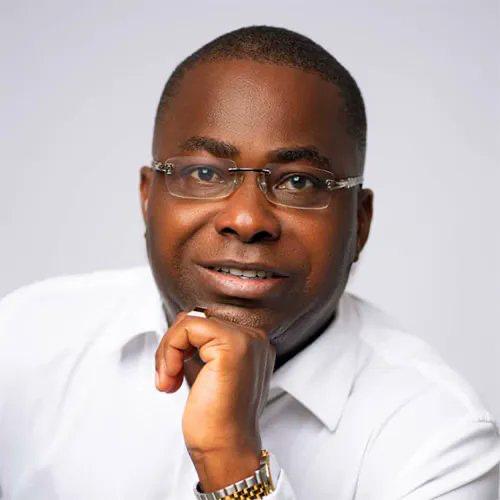Ghana’s Supreme Court Delivers Landmark Ruling in Charles Bissue Case

In a ruling that could redefine legal accountability in Ghana, on Tuesday, June 3, 2025, the Supreme Court granted Charles Bissue’s certiorari application. By overturning a prior High Court decision that favored the Office of the Special Prosecutor (OSP), this verdict marks a watershed moment in the nation’s judicial journey. The decision not only secures a major win for Bissue who has consistently denied the allegations against him but also sends a strong message about the necessity for impartiality in the judicial process.
Expanded Background and Context
Charles Bissue, a former high-ranking public official and once the Secretary to the Inter-Ministerial Committee on Illegal Mining (IMCIM), has long been at the epicenter of a case rife with controversy. The charges—ranging from allegations of corruption and bribery to abuse of public office—have been a lightning rod for public debate. Although initially pressed by the OSP, Bissue has categorically denied the charges. His legal battle has garnered intense scrutiny, as it raises broader questions about the checks and balances within Ghana’s legal machinery and the safeguards against potential misuse of prosecutorial power.
The case’s roots extend deep: from Bissue’s time with the IMCIM (a committee set up in part to combat illegal mining activities) to the intricate processes that saw him face multiple criminal charges. These included counts related to using public office for profit and corruption allegations as detailed by the OSP in previous proceedings This extended background underscores both the complexity of the legal and administrative frameworks in Ghana and the high stakes for every stakeholder in the administration of justice.
Detailed Analysis of the Supreme Court’s Ruling
In granting the certiorari application, the Supreme Court effectively nullified a High Court ruling that had sided with the OSP. Central to the Supreme Court’s decision was a recognition of procedural irregularities and an expressed concern over the potential for judicial bias due to the involvement of a High Court judge in the earlier handling of the case.
Specifically, the court went as far as to restrict that particular judge from any further involvement in the proceedings. This decisive measure underscores the judiciary’s commitment to ensure that no party is disadvantaged by conflicts of interest or misapplied legal standards. By stepping in at this juncture, the Supreme Court has set a precedent for judicial accountability reminding all legal practitioners that adherence to stringent due process is paramount to upholding the rule of law and maintaining public trust in the judicial system.
This intervention is more than a legal corrective; it is a statement that fairness in judicial proceedings cannot be compromised for expediency or under extraneous pressures. The ruling sends a clear signal that any deviation from due process will be met with rigorous judicial review.
Implications for Judicial Integrity and Accountability
The significance of this ruling transcends the immediate case. In overturning the earlier decision, the Supreme Court has accentuated the need for high judicial standards and underscored the essential principle that all judges must act with unwavering impartiality. This outcome is especially relevant in a context where trust in the judiciary is under constant scrutiny.
For legal observers and stakeholders alike, the decision reinforces the idea that checks and balances within the judicial system exist not just to punish wrongdoing but to correct procedural lapses and prevent. As legal practitioners and policy makers debate the repercussions, questions are emerging about reform initiatives aimed at enhancing judicial accountability. Discussions now centre on improved training, greater oversight, and more robust mechanisms to ensure that all court officials abide by the highest standards of conduct.
In doing so, the Supreme Court’s move advocates for a re-examination of judicial practices in Ghana—making it a potential catalyst for wider systemic reforms that reinforce transparency and due process within the nation’s legal framework.
Future Outlook and Broader Legal Impact
As the case moves forward under the oversight of a newly assigned judge, the spotlight will remain on the exact manner in which Ghana’s legal institutions handle high-stakes and high-visibility cases. The new phase of proceedings promises to be closely monitored, as it will test not just the legal arguments of both sides, but also the robustness of safeguards in place to protect the integrity of the judicial process.
For observers, legal experts, and the wider public, the outcome will likely serve as a benchmark. It could stimulate significant debate about both the role of the judiciary and the necessity for ongoing reforms aimed at solidifying the public’s trust in judicial independence. As the country navigates these tumultuous legal waters, this landmark ruling is poised to be a touchstone in discussions regarding governance, accountability, and the evolution of the legal system in Ghana.
Societal Reaction and Analytical Perspectives
Reactions to the ruling have been decidedly mixed. On one hand, many view it as a triumphant assertion of judicial independence—a necessary corrective that reaffirms the commitment to equal justice under law. On the other, some critics are wary about the broader implications for prosecutorial practices and fear that such high-profile interventions might inadvertently embolden parties to challenge earlier rulings on strategic grounds.
Legal analysts have emphasized that the case’s trajectory could force a broader conversation about the relationship between high-ranking government officials and the judiciary, highlighting both the risks and the necessary evolution of checks on executive influence. As the narrative unfolds, the intersection of legal processes, political accountability, and societal expectations continues to provoke fresh debate.
A Benchmark for Justice
The Supreme Court’s decision in the Charles Bissue case stands as a powerful reaffirmation of Ghana’s commitment to unbiased justice. It reminds us that despite the inherent complexities of legal administration—especially in cases that touch upon corruption and public accountability—the principles of fairness and due process must always guide us. As the legal battle continues, the nation watches closely, aware that this ruling not only affects one individual’s fate but also charts the course for the ongoing evolution and integrity of Ghana’s judiciary.



0 Comments
No comments yet, be the first to comment